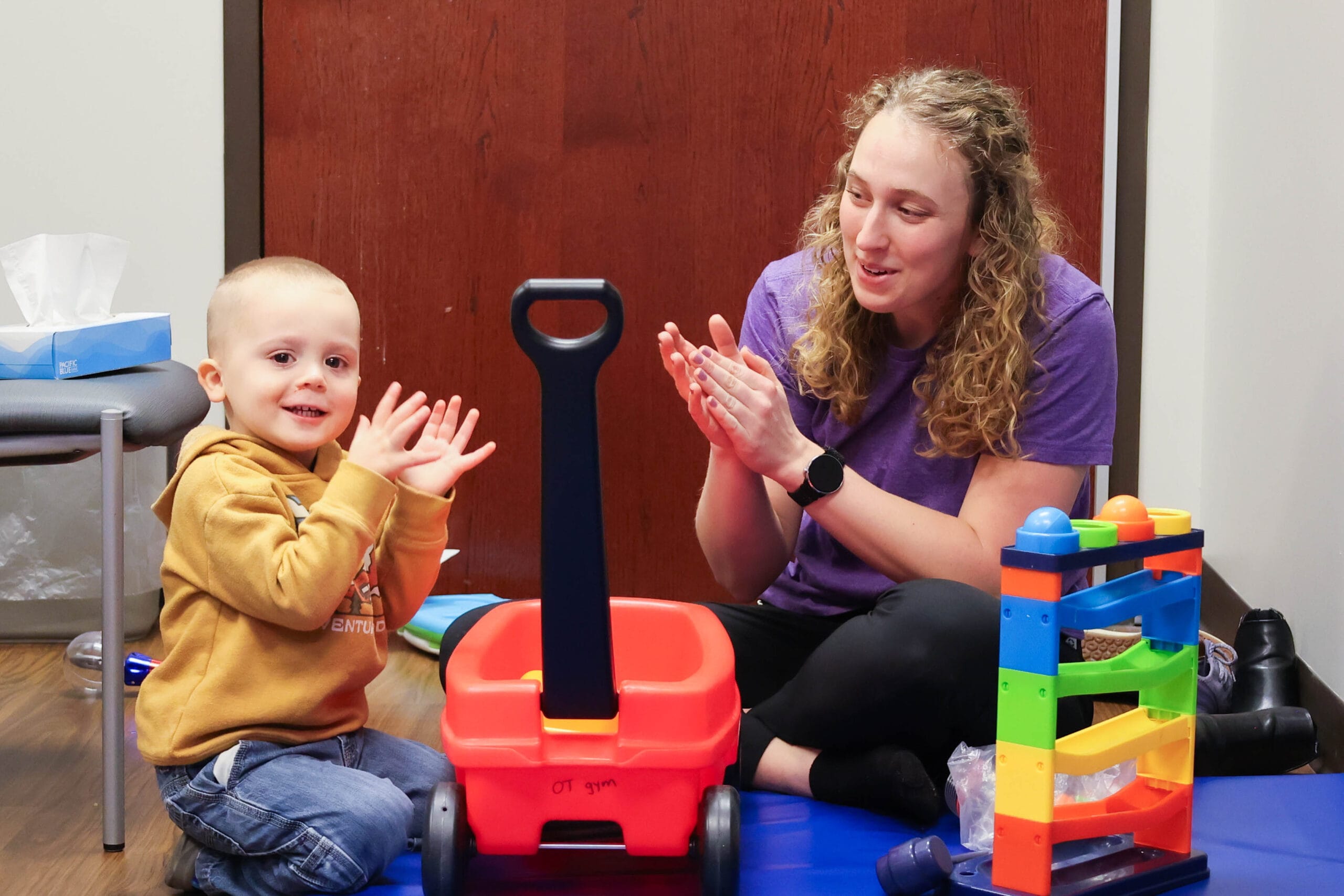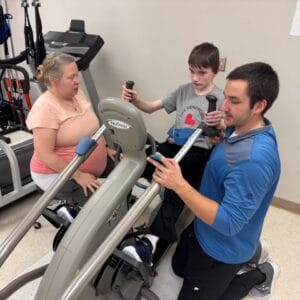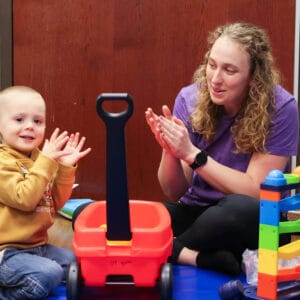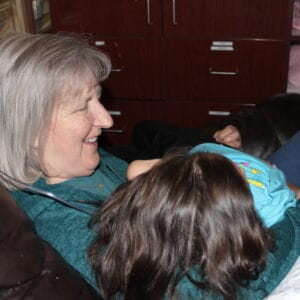When two-year-old Jude Hannasch of Colton was diagnosed with autism this past December, it was actually a relief to his parents. “It meant we could start getting services for him,” says his mom, Sydney.
She and her husband Kelvin weren’t surprised by the diagnosis. Sydney has a degree in special education, and Kelvin had volunteered in high school as a Best Buddy for kids with autism. The signs were all there. Jude hadn’t spoken until he was 18 months old, and then usually only one word at a time. He was very hyperactive with a short attention span. He had food aversions, gastrointestinal difficulties, a sensitivity to light, and didn’t tolerate change or transitions well. With the diagnosis confirmed, they turned to LifeScape for help.
The family was already getting services at LifeScape for their infant twins, Sawyer and Juniper. Born six weeks prematurely in January 2024, the brother and sister were getting outpatient therapies to help them catch up developmentally.
Both Juniper and Sawyer receive physical therapy for gross motor development to help them crawl, walk, run, and jump. Sawyer also gets occupational therapy for fine motor development and speech-language pathology for eating challenges.
Early intervention is important in helping all children catch up on developmental milestones. This is especially critical with an autism diagnosis, as it involves foundational areas of development, such as learning, communication, and social skills. Addressing challenges early on capitalizes on brain plasticity during critical developmental stages.
At LifeScape, Jude was promptly enrolled in a treatment program known as the Early Start Denver Model (ESDM). ESDM is an early intervention approach designed for young children with autism or autism-related characteristics. The therapy is delivered through a combination of speech-language pathology and occupational therapy, with additional input from professionals in psychology and behavioral therapy.
Perhaps because Sydney had taught Jude several words in sign language, he caught on quickly with speech therapy. His increased ability to communicate soon began helping with behavior challenges.
“His behavior at home changed completely,” says Sydney. “He naps now, and bedtime is easier.” He is learning expressive language—how to make known his wants, needs and feelings. He is also learning receptive language to understand questions, directions, and conversations.
Besides language development, Jude’s therapy is focusing on routine, managing sensory input, following two-step directions, and increasing his attention span. He has just turned three, and is also learning colors, numbers, and other preschool skills. This will prepare him to start school in August in Early Childhood Education.
The three children’s therapy schedules are all-consuming now, but Kelvin and Sydney know it will pay huge dividends for their children’s futures. “Coming to LifeScape was like a breath of fresh air,” says Sydney.
She and Kelvin are grateful for the expertise that Jude, Juniper, and Sawyer are benefiting from at LifeScape. They know that early intervention increases their chances of success at school and in life.
Sydney also urges other parents to trust their instincts if they think their child might need therapy help for their development. “It’s better to have them evaluated and have them say you don’t need services than to wait and then need them and have your child be behind,” says Sydney.
“LifeScape has helped our children thrive in so many ways,” says Sydney. “We are beyond thankful for the amazing therapists who work with our children.”
In case you missed it, here is the Empowered special that aired on June 7th, 2025: https://www.dakotanewsnow.com/2025/06/07/watch-dakota-news-now-presents-empowered-by-lifescape/





